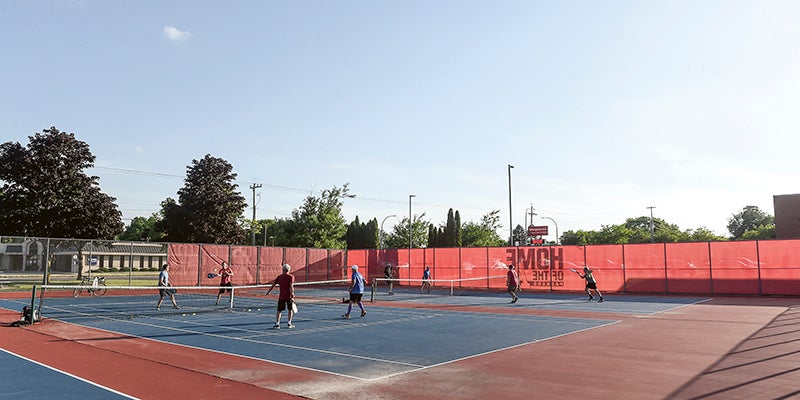Dual-credit college course instructor requirements get 5-year extension
Published 10:32 am Wednesday, November 18, 2015
By Christopher Magan and Jenae Hackensmith
St. Paul Pioneer Press and Austin Daily Herald
College and university sponsors of dual-credit classes that allow Minnesota high school students to earn college credits now can have an extra five years to meet new requirements for the class instructors.
The board of trustees of the Higher Learning Commission, a Midwestern college and university accrediting agency, voted Nov. 5 to allow schools to request delays until 2022 of compliance with a recent update for instructor training.
The extensions might not be enough to satisfy advocates of dual-credit courses who say the change is unnecessary and complying will be costly for Minnesota educators.
In June, the commission updated its “assumed practices” to require that by 2017 all college and university instructors hold either master’s degrees in the field they teach, or master’s degrees in another field and 18 credits in the fields they teach.
The commission accredits about 1,000 institutions in 19 states; more than 100 of the institutions are in Minnesota.
In 2014, nearly 25,000 students took dual-enrollment courses to earn college credit without leaving their high schools. Educators say these classes will help improve the long-term academic success of students and save them money on tuition.
About 160 Austin Public Schools students take advantage of the concurrent classes each year, and about 380 students take advantage of both concurrent and advanced placement (AP) classes, according to Austin High School Principal Katie Baskin.
But district officials had said AHS students wouldn’t be initially affected by the new requirements.
Austin Public Schools Director of Human Resources Brad Bergstrom said the district has been following the requirements since he started as the high school principal in 2005, and possibly longer.
Bergstrom had said much of the concern over the new requirements are that many schools will no longer be able to offer the concurrent classes due to the lack of teachers who meet the requirements. Many districts require teachers to go through an interview process before they can teach concurrent classes, and Bergstrom said many of the teachers have taught their subjects for several years. He said much of the required curriculum for concurrent classes overlaps with high school level classes.
Baskin previously said the district has been lucky over the years to find teachers who are qualified to meet the standards, or willing to go back to school to get to the standards, yet she said it can be difficult.
“It’s very difficult not only to hire in rural Minnesota but to hire people with those qualifications,” she said.
The high school offers five concurrent classes through Riverland Community College and 12 AP classes. Statewide, a growing number of students rely on dual-credit classes to earn college credits to cut their future higher education costs.
Earlier this year, news of the policy update set off a firestorm across the Midwest among dual-credit course advocates who fear many current instructors would not be qualified under the change.
Commission leaders visited Minnesota in October to testify before a joint session of the state House and Senate education committees. The leaders told lawmakers the recent policy update only clarified what has long been expected of instructors.
Colleges and universities must apply for extensions by next September, commission spokesman John Hausaman said. Those approved will have until September 2022 to comply with the updated rule.
Joe Nathan, who helped create Minnesota’s dual-credit programs, said the extension would merely delay what he considers an unnecessary burden on instructors who will have to pay the cost of returning to school.
Nathan noted that when commission leaders visited Minnesota, they failed to convince lawmakers that the changes were needed.
“This extension shows they are feeling anger and frustration from throughout the Midwest,” Nathan said. “Their demands still will cost millions of dollars to implement.”
Kevin Lindstrom, president of the Minnesota State College Faculty union, said education advocates shouldn’t be surprised by the Higher Learning Commission’s move to ensure all college and university instructors meet strict academic requirements.
“All this really does, from my perspective, is kick the can down the road,” Lindstrom said of the decision to offer extensions. “The fundamental issues are the same as they’ve always been.”
Lindstrom noted that the Legislature passed a bill this year endorsing standards from the National Alliance of Concurrent Enrollment Partnerships. Those standards aim to ensure dual-credit high school classes are held to the same standard as regular college courses.
The standards say course instructors should meet the same academic requirements as on-campus faculty. Those requirements often differ by institution and don’t necessarily specify the degree instructors must hold.
Lindstrom said many dual-credit instructors are now certified to teach under credentialing flexibility designed to allow professional experts to teach college courses. The flexibility was not initially intended to allow high school teachers with master’s degrees in education to teach college classes, he said.
—St. Paul Pioneer Press content is distributed by Tribune Content Agency.





